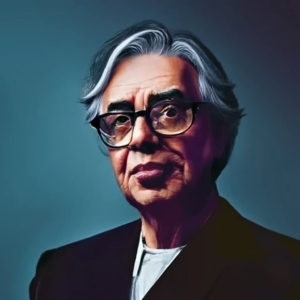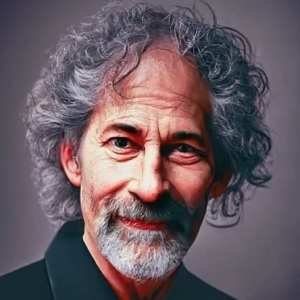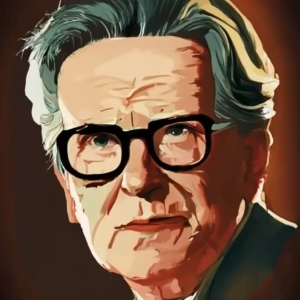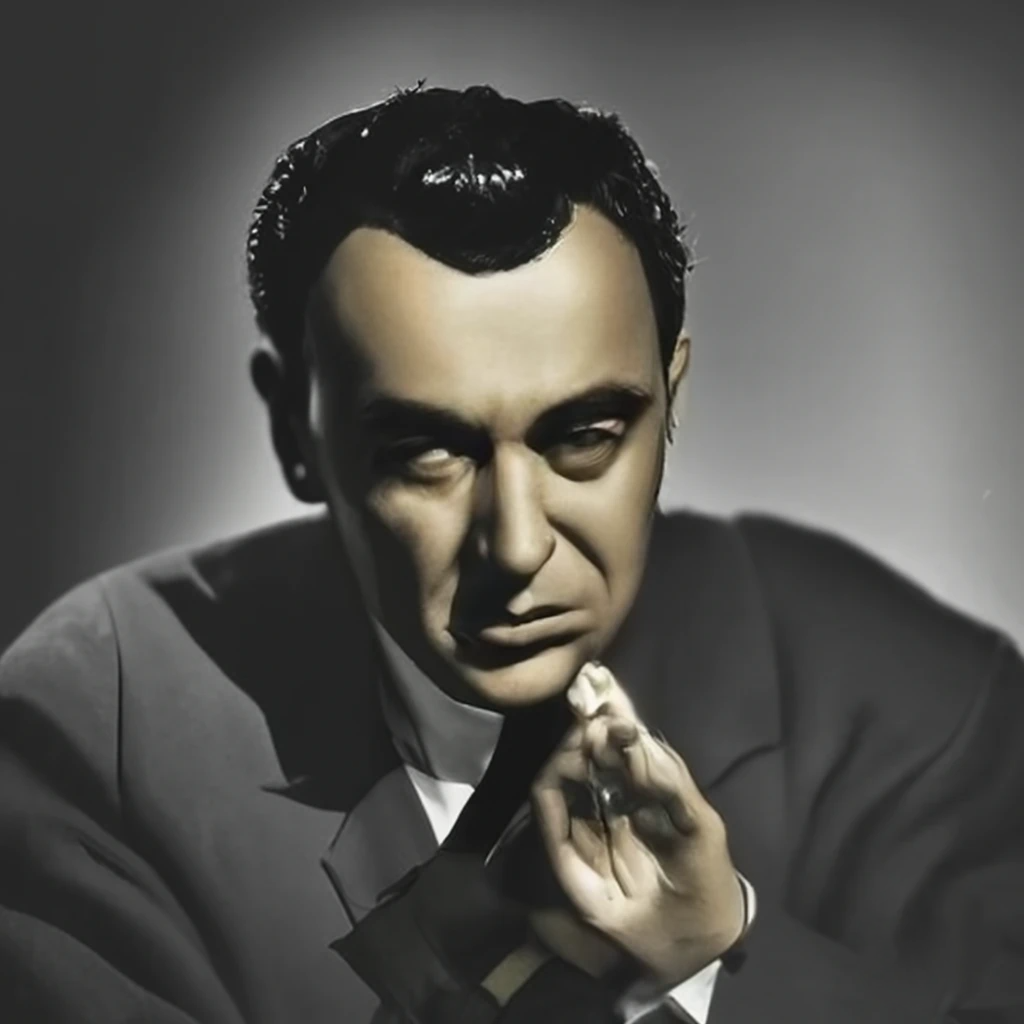Introduction
Ennio Morricone, an Italian composer born on November 10, 1928, in Rome, is an iconic figure in the world of film music. Renowned for his groundbreaking contributions to cinema, Morricone’s name is synonymous with evocative and innovative soundscapes that have left an indelible mark on the industry. His fame transcends borders, with a prolific career spanning over six decades and encompassing over 500 film scores, making him one of the most prolific and influential composers in history. In this blog post, we will delve into Morricone’s fascinating background, explore his distinctive musical style and genre, highlight his illustrious career milestones, examine his enduring impact on both film and music, and celebrate his lasting legacy. Get ready to embark on a journey through the life and music of the maestro, Ennio Morricone.
Background and Early Life
Ennio Morricone was born in Rome, Italy, on November 10, 1928, to a musician father and a mother who was a homemaker. Growing up in Rome, Morricone was exposed to music from a young age due to his father’s profession as a trumpet player. This early exposure laid the foundation for his lifelong passion for music.
Morricone’s formative years were marked by a diverse range of musical influences, including classical, jazz, and popular music. He studied trumpet and composition at the Conservatorio di Santa Cecilia in Rome, honing his skills and developing a deep understanding of music theory. During this time, he was influenced by the works of classical composers such as Bach, Beethoven, and Stravinsky, as well as jazz musicians like Duke Ellington and Miles Davis.
Key moments that shaped Morricone’s musical journey include his collaborations with his childhood friend, Sergio Leone, who would later become a renowned film director. Their friendship and shared passion for cinema laid the groundwork for Morricone’s iconic contributions to the Spaghetti Western genre. Additionally, Morricone’s early experiences working as an arranger and conductor for radio and television orchestras provided valuable practical experience and helped him refine his craft. These formative experiences not only shaped Morricone’s unique musical style but also prepared him for the groundbreaking work he would later produce in the world of film scoring.
Musical Style and Genre
Ennio Morricone’s musical style is characterized by its versatility, innovation, and emotional depth, spanning a wide range of genres and moods. He is perhaps best known for his contributions to the Spaghetti Western genre, where his distinctive soundscapes helped redefine the cinematic experience. Morricone’s music often combines traditional orchestral elements with unconventional instruments and techniques, resulting in compositions that are both timeless and groundbreaking.
One of Morricone’s most significant innovations was his use of unconventional instrumentation, incorporating elements such as whistling, electric guitars, and wordless vocals to create evocative and atmospheric soundscapes. This experimental approach to composition added layers of complexity and richness to his music, setting him apart from his contemporaries.
Morricone’s ability to evoke powerful emotions through his music is another hallmark of his style. Whether conveying the tension of a high-stakes shootout or the poignancy of a tender love scene, his compositions have a visceral impact that transcends language and resonates with audiences on a profound level.
Some signature songs and albums that exemplify Morricone’s style include:
1. “The Good, the Bad and the Ugly” (1966) – The iconic theme from Sergio Leone’s spaghetti western masterpiece is perhaps Morricone’s most famous composition, featuring twangy guitars, haunting whistling, and stirring orchestration.
2. “Once Upon a Time in the West” (1968) – The soundtrack to Leone’s epic western is a masterclass in atmospheric storytelling, with sweeping orchestral arrangements and memorable melodies that capture the vastness and beauty of the American frontier.
3. “The Mission” (1986) – Morricone’s score for Roland Joffé’s historical drama is a haunting and ethereal masterpiece, blending traditional orchestral elements with indigenous South American instrumentation to create a lush and immersive soundscape.
These examples showcase Morricone’s ability to push the boundaries of genre while maintaining a distinctive and unmistakable musical voice. His innovative approach to composition and his unparalleled ability to evoke emotion through music have cemented his legacy as one of the most influential composers in film history.
Career Highlight
Ennio Morricone’s illustrious career is marked by numerous milestones and achievements that have solidified his reputation as a legendary composer in the world of film music. From his groundbreaking collaborations with renowned directors to his countless awards and accolades, Morricone’s career highlights reflect his enduring impact on the industry.
One of Morricone’s breakthrough moments came with his collaboration with director Sergio Leone on the “Dollars Trilogy” – “A Fistful of Dollars” (1964), “For a Few Dollars More” (1965), and “The Good, the Bad and the Ugly” (1966). These films not only revolutionized the Western genre but also showcased Morricone’s innovative approach to film scoring, earning him widespread acclaim and recognition.
Another significant milestone in Morricone’s career was his collaboration with director Giuseppe Tornatore on the film “Cinema Paradiso” (1988). The film’s poignant score, composed by Morricone, won him widespread acclaim and earned him his first Academy Award nomination for Best Original Score. Morricone’s emotive melodies and evocative themes perfectly captured the nostalgia and magic of cinema, cementing his status as one of the most influential composers in the industry.
Morricone’s career is also distinguished by his extensive work in Hollywood, where he collaborated with acclaimed directors such as Quentin Tarantino, Brian De Palma, and Terrence Malick. His scores for films such as “The Untouchables” (1987), “Inglourious Basterds” (2009), and “The Hateful Eight” (2015) further solidified his reputation as a master of his craft and earned him numerous awards and nominations, including an Academy Award for Best Original Score for “The Hateful Eight.”
In addition to his work in film, Morricone has also composed music for television, theater, and concert performances, further showcasing his versatility and creativity as a composer. His collaborations with artists from diverse musical backgrounds, including Joan Baez, Andrea Bocelli, and Yo-Yo Ma, highlight his ability to transcend genres and collaborate with a wide range of talents.
Overall, Ennio Morricone’s career is defined by a legacy of innovation, creativity, and unparalleled artistry. His groundbreaking contributions to film music have left an indelible mark on the industry and continue to inspire generations of composers and filmmakers alike.
Impact and Influence
Ennio Morricone’s influence on his genre and the wider music industry is profound and far-reaching, extending beyond the realm of film music to impact various genres and artistic disciplines. His innovative approach to composition and his ability to evoke powerful emotions through music have inspired countless artists and contributed to the evolution of musical trends.
Morricone’s groundbreaking work in the realm of film scoring has had a significant impact on the way filmmakers approach the use of music in cinema. His use of unconventional instrumentation, experimental techniques, and emotive themes has set a new standard for film composers, pushing the boundaries of what is possible within the medium. Directors such as Quentin Tarantino, who collaborated with Morricone on films like “Inglourious Basterds” (2009) and “The Hateful Eight” (2015), have cited him as a major influence on their own work, praising his ability to enhance storytelling through music.
Beyond the world of cinema, Morricone’s influence can be felt in various musical genres, from rock and pop to classical and jazz. Artists such as Metallica, Radiohead, and Muse have drawn inspiration from Morricone’s cinematic soundscapes, incorporating elements of his music into their own compositions. Metallica’s use of orchestral arrangements and dramatic themes in albums like “S&M” (1999) and “Death Magnetic” (2008) reflects Morricone’s influence on the band’s sonic palette, while Radiohead’s experimental approach to songwriting and production has been compared to Morricone’s innovative style.
In the classical music world, Morricone’s impact can be seen in the work of contemporary composers who have been inspired by his approach to orchestration and composition. Artists such as Hans Zimmer, John Williams, and Alexandre Desplat have cited Morricone as a major influence on their own music, praising his ability to create memorable melodies and evoke powerful emotions through his compositions.
Overall, Ennio Morricone’s influence on his genre and the wider music industry is undeniable. His groundbreaking work in film scoring, innovative approach to composition, and enduring legacy continue to inspire artists across generations and genres, cementing his status as one of the most influential composers of the 20th century.
Personal Life and Public Imag
Ennio Morricone was known for leading a relatively private personal life, focusing primarily on his music and professional endeavors. He was married to Maria Travia, whom he met while studying at the Conservatorio di Santa Cecilia in Rome, and they had four children together. Morricone’s family life provided him with a sense of stability and support throughout his career, allowing him to devote himself fully to his musical pursuits.
In terms of hobbies and interests, Morricone was passionate about literature, art, and cinema, often drawing inspiration from these sources in his compositions. He was an avid reader and a connoisseur of classical literature, which informed his approach to storytelling through music. Additionally, Morricone had a deep appreciation for visual art and frequently attended exhibitions and galleries to fuel his creativity.
Throughout his career, Morricone faced few controversies, maintaining a reputation as a dedicated and principled artist. However, one notable challenge he encountered was the tension between artistic integrity and commercial success. As a composer for hire, Morricone often found himself balancing the demands of filmmakers and producers with his own creative vision, leading to occasional conflicts over the direction of his music. Despite these challenges, Morricone remained steadfast in his commitment to producing quality work that resonated with audiences and filmmakers alike.
In terms of his public image, Morricone was revered as a musical genius and a cultural icon, admired by fans and colleagues alike for his unparalleled talent and contributions to the world of music. Over time, his public image evolved from that of a respected composer to that of a legendary figure whose influence transcended borders and generations. As his body of work continued to grow and his impact on the industry became increasingly apparent, Morricone’s legacy was solidified as one of the greatest composers of the 20th century. Today, he is remembered not only for his groundbreaking compositions but also for his unwavering dedication to his craft and his lasting influence on the world of music and cinema.
Discography or Body of Wor
Ennio Morricone’s discography is vast and varied, spanning over six decades and encompassing a wide range of musical genres and styles. From his iconic film scores to his classical compositions and collaborative efforts, Morricone’s body of work is a testament to his versatility and creativity as a composer.
One of Morricone’s most notable collaborations was with director Sergio Leone, which resulted in a series of iconic film scores that revolutionized the Western genre. Albums such as “The Good, the Bad and the Ugly” (1966), “Once Upon a Time in the West” (1968), and “A Fistful of Dynamite” (1971) feature some of Morricone’s most beloved and influential compositions, including the unforgettable themes that have become synonymous with Leone’s films.
In addition to his work in cinema, Morricone also released numerous albums of original music and classical compositions. Albums such as “Cinema Paradiso” (1988), “The Mission” (1986), and “Once Upon a Time in America” (1984) showcase Morricone’s ability to create evocative and emotionally resonant music that transcends the confines of the screen.
Throughout his discography, Morricone’s music exhibits a remarkable range of styles and influences, from sweeping orchestral arrangements to minimalist compositions and experimental soundscapes. His thematic and stylistic shifts reflect his willingness to explore new musical territories and push the boundaries of traditional composition.
For example, in his later years, Morricone experimented with electronic music and ambient sounds, incorporating elements of synthesizers and computer-generated effects into his compositions. Albums such as “Voyage: A Journey in Sound” (1999) and “Morricone 60” (2016) demonstrate Morricone’s willingness to embrace new technologies and adapt his music to the changing times.
Overall, Ennio Morricone’s discography is a testament to his unparalleled talent and creativity as a composer. From his groundbreaking film scores to his innovative solo albums and collaborative efforts, Morricone’s music continues to captivate audiences around the world and inspire generations of musicians and filmmakers alike.
Legacy and Cultural Impac
Ennio Morricone’s legacy and cultural impact are immeasurable, spanning generations and transcending borders to leave an indelible mark on the world of music, culture, and society at large. As one of the most prolific and influential composers of the 20th century, Morricone’s contributions have shaped the landscape of film music and inspired countless artists across genres and disciplines.
Morricone’s lasting legacy lies in his ability to capture the essence of human emotion and experience through his music. His evocative compositions have the power to transport listeners to different worlds, evoke powerful emotions, and enhance the storytelling process in cinema. Whether conveying the tension of a high-stakes shootout or the beauty of a pastoral landscape, Morricone’s music has a universal appeal that resonates with audiences of all ages and backgrounds.
In addition to his impact on film music, Morricone’s influence can be felt in various aspects of popular culture, from television and advertising to fashion and art. His iconic themes and memorable melodies have been sampled, referenced, and reinterpreted in countless ways, further solidifying his status as a cultural icon.
Morricone’s work continues to resonate with audiences today, as evidenced by the enduring popularity of his music and the ongoing recognition and appreciation of his contributions to the world of cinema. His compositions are regularly performed in concert halls around the world, celebrated in film festivals and retrospectives, and studied by aspiring composers and filmmakers seeking to understand the secrets of his craft.
Moreover, Morricone’s music transcends the boundaries of time and space, remaining as relevant and impactful today as it was when it was first composed. Whether experienced in the context of a classic film or enjoyed as a standalone piece of art, Morricone’s music has a timeless quality that speaks to the human spirit and continues to inspire and uplift audiences across the globe.
In conclusion, Ennio Morricone’s legacy and cultural impact are unparalleled, leaving an enduring legacy that will continue to inspire and influence generations of artists and audiences for years to come. Through his groundbreaking compositions and innovative approach to music, Morricone has left an indelible mark on the world of cinema and music, solidifying his status as one of the greatest composers of all time.
Fanbase and Community
Ennio Morricone’s fanbase is as diverse and passionate as his music itself, consisting of fans from all walks of life who have been captivated by his timeless compositions and cinematic storytelling. Morricone’s music has a universal appeal that transcends cultural and generational boundaries, attracting fans from around the world who share a deep appreciation for his artistry and creativity.
The community that has formed around Morricone’s music is a tight-knit and supportive group, united by their love for his compositions and their desire to celebrate his legacy. Fan clubs and online forums provide platforms for fans to connect, share their favorite Morricone moments, and discuss his music in depth. These communities foster a sense of camaraderie and belonging among fans, creating opportunities for collaboration, exploration, and discovery.
Dedicated fan events and gatherings, such as film screenings with live orchestral performances of Morricone’s music or themed concerts dedicated to his compositions, offer fans the chance to come together and experience his music in a live setting. These events not only celebrate Morricone’s contributions to the world of music but also provide fans with unforgettable experiences and memories that they will cherish for years to come.
In addition to celebrating Morricone’s music, fans also engage in charitable and philanthropic efforts inspired by the composer’s humanitarian values and commitment to social justice. For example, fan-led initiatives may raise funds for causes related to music education, arts advocacy, or humanitarian aid, aligning with Morricone’s belief in the transformative power of music to bring about positive change in the world.
Overall, Ennio Morricone’s fanbase and community are a testament to the enduring impact of his music and the profound connection that fans feel to his compositions. Through their shared passion and dedication, fans continue to honor Morricone’s legacy and ensure that his music remains alive and cherished for generations to come.
Conclusion
In conclusion, this blog post has provided a comprehensive exploration of the life, work, and legacy of Ennio Morricone, one of the most iconic and influential composers in the history of film music. From his early days in Rome to his groundbreaking collaborations with directors like Sergio Leone and Giuseppe Tornatore, Morricone’s career has been marked by innovation, creativity, and a commitment to storytelling through music.
We have delved into Morricone’s unique musical style, which blends traditional orchestral elements with experimental techniques and unconventional instrumentation to create evocative and atmospheric soundscapes. His compositions have left an indelible mark on the world of cinema, reshaping the landscape of film music and inspiring generations of composers and filmmakers.
Morricone’s impact extends beyond the realm of film, influencing artists across genres and disciplines and leaving a lasting legacy that continues to resonate with audiences around the world. His music has the power to evoke powerful emotions, transport listeners to different worlds, and transcend cultural and generational boundaries.
As we celebrate Ennio Morricone’s life and work, it is important to recognize the significance of his contributions to music, culture, and society at large. His enduring legacy serves as a reminder of the transformative power of music to inspire, uplift, and unite people from all walks of life.
I encourage readers to further explore Morricone’s vast body of work, from his iconic film scores to his classical compositions and collaborative efforts. Whether experienced in the context of a classic film or enjoyed as standalone pieces of art, Morricone’s music has a timeless quality that continues to captivate and inspire audiences across the globe.
Finally, I invite readers to engage with the vibrant community of fans and enthusiasts who share a deep appreciation for Morricone’s music. Whether through fan clubs, online forums, or dedicated fan events and gatherings, there are countless opportunities to connect with like-minded individuals and celebrate the legacy of one of the greatest composers of all time, Ennio Morricone.





